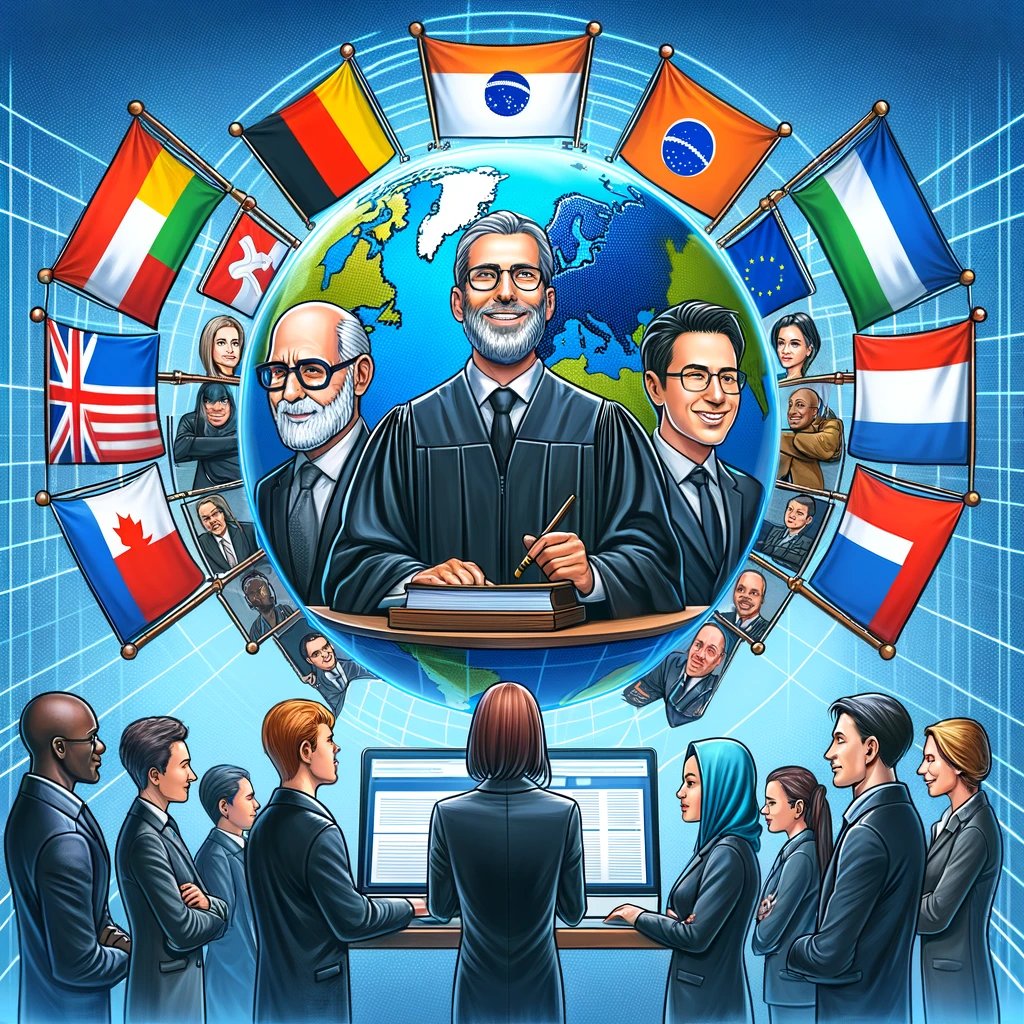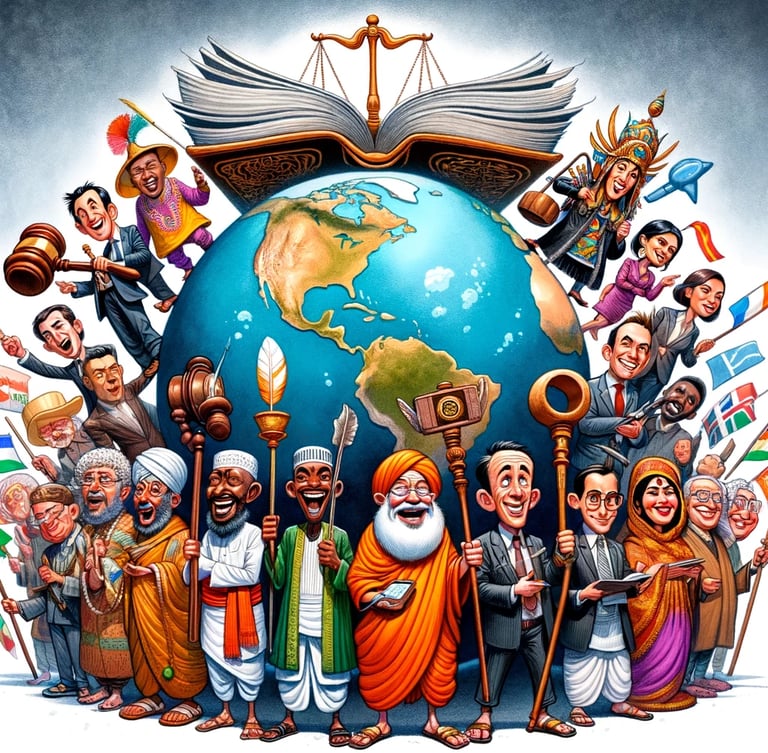Crafting Justice Without Borders: The Path Towards a Global Legal Institution
Diplomatic Hall
2/3/20243 min read


In an era where the ripples of crime traverse oceans and digital realms with equal ease, the call for a unified front in legal enforcement and justice delivery has never been more pressing. The recent dialogue initiated by global leaders and legal luminaries, including the Chief Justice of India, Dhananjaya Y. Chandrachud, and Prime Minister Narendra Modi, underscores a growing consensus: our fragmented approach to cross-border criminality is a chink in the armor of national and global security.
This opinion piece explores the imperative, challenges, and transformative potential of establishing a
World Legal Organization (WLO),
drawing on insights from the Commonwealth Attorney and Solicitors Generals Conference 2024 and other pivotal forums.
The Global Call for Legal Unity
The specter of transnational crime, from cyber fraud to human trafficking, reveals the limitations of our current justice mechanisms, confined as they are within national borders. The Chief Justice's emphasis on global collaboration and trust-building is not just a call to action but a reflection of a deeply felt need for an overarching legal framework that transcends geographical and jurisdictional barriers.
Navigating the Sovereign Maze
The journey towards a global legal institution is fraught with challenges, chief among them being the sovereignty of nations and the diversity of legal systems. Yet, as history shows with the establishment of the WTO and WHO, global challenges necessitate global responses. The question remains: How can we reconcile the sanctity of national sovereignty with the need for a unified legal mechanism?
The Blueprint of a Global Legal Institution
Envisioning a World Legal Organization, we draw inspiration from existing international bodies. The WLO could serve as a central hub for harmonizing legal standards, facilitating cross-border legal assistance, and promoting best practices. By fostering a culture of legal interoperability, such an institution could significantly streamline the processes of extradition, evidence sharing, and the prosecution of international crimes.
Technological Frontiers and Legal Horizons
The digital age, while presenting new avenues for crime, also offers innovative tools for justice delivery. A global legal institution could harness these technologies, ensuring that the pursuit of justice is not hampered by digital divides. This requires a commitment to not only modernize legal frameworks but also to ensure that technology enhances transparency, accountability, and access to justice.
The Road Ahead
The establishment of a World Legal Organization is an ambitious vision, one that requires the concerted effort of nations, legal professionals, civil society, and international bodies. It necessitates a paradigm shift from viewing justice through a national lens to embracing a global perspective on legal challenges and solutions.
As we stand at the crossroads of tradition and innovation, the path toward a global legal institution represents a bold step forward in pursuing a more just and secure world. It's a journey fraught with complexities, but the promise of a unified legal mechanism to combat transnational crime and uphold human rights is a goal worth striving for. The dialogue has begun, the foundation is being laid, and the time to act is now. Let us forge ahead, crafting justice without borders, for a future where law and order know no boundaries.
(With AI Input)






Who We Are:
Economic Nations champions global unity through economic collaboration, focusing on sustainable growth, reducing inequalities, and enhancing global relationships for mutual prosperity and peace.
Contacts
enquiry@economicnations.org
(xx) 98-11-937-xxx (On verification)
